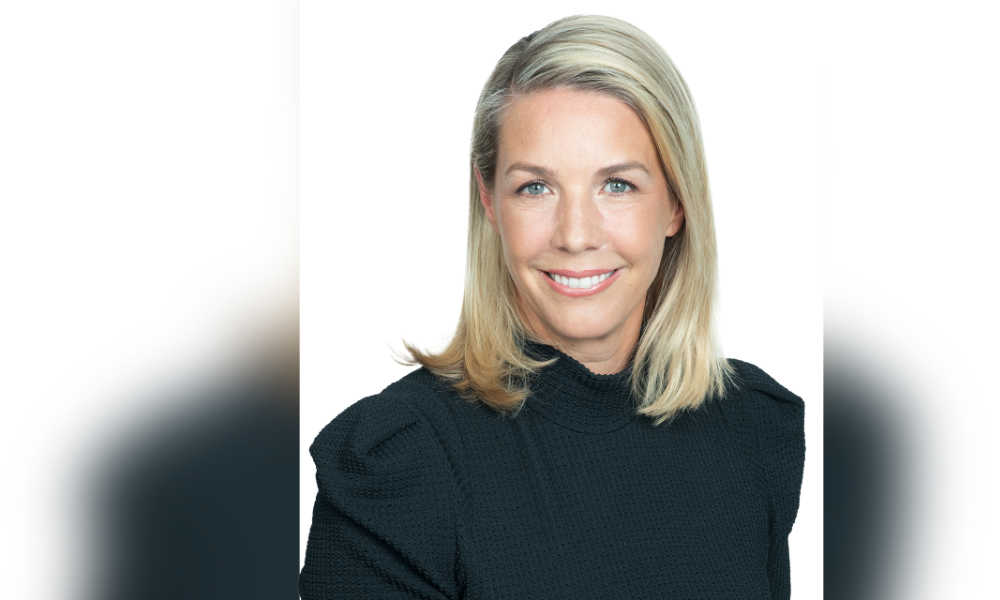Head of Canada at Ninety One explains the growing trend among Canadian investors to move away from domestic fixed income to a global multi-asset credit approach

As head of Canada at Ninety One, an active, global investment manager with beginnings out of South Africa, Katherine Tweedie sees several key trends within the fixed income and emerging markets sectors. And with Donald Trump now elected as the 47th president of the United States, investment managers are carefully assessing the implications for financial markets.
Notably, the fixed income market is facing a period of increased uncertainty, with the potential for higher interest rates, a stronger US dollar, and stickier inflation. However, Tweedie remains optimistic about the asset class, noting that a positive environment may be on the horizon. "We're hoping that with a reduction in inflation, we're set up really well for a positive environment for fixed income again," she says.
Tweedie highlights the growing trend among Canadian investors to move away from solely domestic fixed income portfolios towards a more diversified "Core Plus" or global multi-asset credit approach. "If you think about the narrowness of a single market in fixed income, it obviously impacts the ability to generate returns," she explains. "Why we like a multi-asset approach, or the ability to go more broadly, is the ability to look for that diversified opportunity set and play different elements of the market."
By accessing a global opportunity set, Canadian investors can search for better risk-adjusted returns across different geographic regions. Tweedie points out that this shift aligns with the fiduciary duty of investment managers to generate the best possible returns for their clients. The US election results are also expected to have implications for emerging markets, particularly in the context of an "America First" agenda and the possibility of increased tariffs. Tweedie acknowledges the challenges but emphasized the long-term case for emerging market investments.
“A higher for longer dollar and higher interest rates in the US are definitely a more challenging environment for EM and fixed income but we always come at it through the lens of diversification,” she says. “It’s really beneficial and you just can’t have your entire fixed income allocation sitting in in one bucket. Ultimately, it comes back to the fact that the growth is going to be driven from emerging markets, and they're very attractive.”
Said attractive opportunities for active investors, Tweedie highlights, is being able to find risk-adjusted returns, creating a portfolio of sovereign or blended and corporates bonds, along with the diversification, pointing to the portfolios of several of Canada’s Maple 8 who invest with Ninety One in EM debt. “It's this diversification argument they really like and that’s still a small part of a fixed income portfolio, maybe three to five per cent allocation, but it's really compelling diversification.”
Another trend Tweedie has witnessed within the EM space is the move towards an EM allocation but splitting out China. Where an investor may have a global EM allocation for ex-China, and then a dedicated allocation to China, allows two things.
“One is while it has been a challenging beta environment for Chinese equities, from an active perspective, there's still significant investment opportunities to be made,” notes Tweedie. “You can dial that up and down depending on your appetite. Secondly, some investors do have the sort of geopolitical concerns, and so having a dedicated China allocation allows them to decide their risk appetite and their governance.”
Amidst these market dynamics, Ninety One has recently taken a significant step in the Canadian EM market with the launch of its first domestic pooled fund, the Emerging Markets Equity Fund, part of the firm’s 4Factor Global Core, their flagship EM equity portfolio. Put simply, the fund aims “to deliver a fairly consistent return profile for an investor regardless of the market environment,” Tweedie explains. Ninety One partnered with Bridgehouse Asset Managers to see the launch of the fund through. The reason Tweedie and her team was able to launch the fund is twofold.
“We've got a well-resourced, long-established platform in emerging markets, so they trusted us to be able to deliver on the investment outcome side,” she explains. “A lot of Canadian investors have been thinking very carefully about their pragmatic approach to sustainability and climate, and that's certainly something that underpins our entire firm philosophy and investing philosophy.”
Tweedie highlights the launch was ultimately catalysed by an existing emerging market equity client who was interested in a Canadian vehicle and willing to become the seed investor, a "mark of confidence" in Ninety One’s capabilities. She asserts the new fund offers a fit-for-purpose solution for smaller family offices and pensions, providing access to the complex asset class of emerging market equities without the need to navigate individual market openings.
“Now that we've got this vehicle, investors don't need to do that. They can subscribe to the fund, and they're in it,” she explains. “What we're hoping with the launch of this is that we will subsequently be able to offer other funds in the years to come.”



